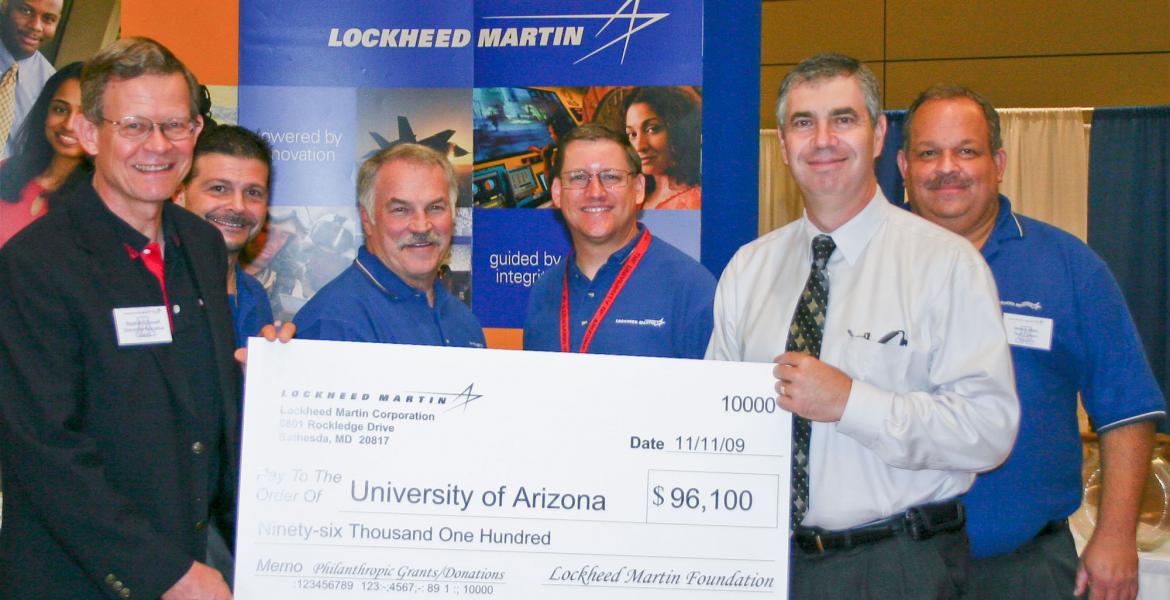Lockheed Martin Funds New Engineering Lab
Lockheed Martin representatives presented College of Engineering Dean Jeff Goldberg with a ceremonial check at a Lockheed Martin technology day Sept. 24. The event was held in the Student Union North Ball Room to promote engineering employment opportunities in the company's various engineering programs, which include deep space exploration, biometric identification systems, and the F-35 Joint Strike Fighter.
The lab will enable undergraduates from many engineering disciplines to use the most modern materials testing equipment, while learning state-of-the-art methods to determine the properties of engineering materials.
The new lab, which will be housed in the aerospace and mechanical engineering building, will also contribute to student recruitment and retention, and skills learned in the lab will help students obtain placement in industry and graduate programs.
Goldberg remembers the old materials testing lab. “It was completely inadequate,” said Goldberg. “Experiments had to be moved in and out because the space was shared with other courses.” The aerospace and mechanical engineering department took up the cause and proposed a lab that could be used by people from all over the college.
“We'll be able to build a facility that is modern, safe and functional,” said Goldberg. “Where students from civil, electrical, materials science, aerospace and mechanical, and mining and geological engineering departments can learn about material properties.”
One of the College of Engineering’s recruiting strategies is to increase the proportion of women and underrepresented minorities in its student population.
Ray Umashankar, director of the multicultural engineering program, organizes summer camps in which students design an aerodynamic automobile using SolidWorks and test the model using rapid prototyping technology. The summer camps will now include the new lab in a demonstration to show students the materials used in engineering and the properties of materials selected for car components. “It’s well known that the more exciting and relevant the engineering experience,” Umashankar said, “the more likely it is that summer campers go on to study engineering in college.”
Susie Bowers, the College of Engineering’s assistant director of recruiting and outreach, organizes tours for potential students. “When we host tours for prospective students, primarily from local high schools, we don’t include many labs because they are not appropriate for visitors,” Bowers said. “A new, attractive lab such as the Lockheed Martin Materials Testing Laboratory will be a great incentive for prospective students.”
The College of Engineering now offers a course, Introduction to Engineering, at several high schools in southern Arizona. Part of this course will involve running and viewing lab experiments over the Internet, which will open the lab to high schools that do not have such equipment.


